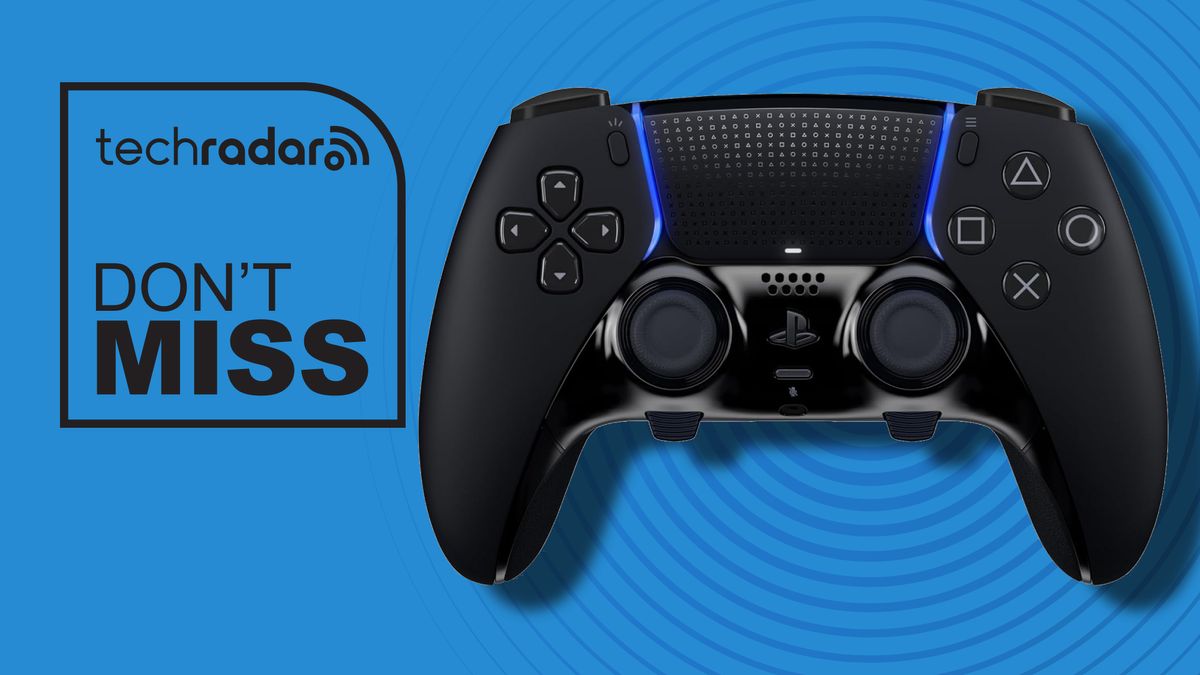Follow ZDNET: Add us as a preferred source on Google.
Work laptops are an interesting category, because they're all out to do the same thing: help professionals and students power through their day. So, when I review these computers, I look at the subtleties.
Even though two models seem identical on the surface, it's the small differences in design and functionality that make one laptop a better experience over another. Case in point: the Asus ExpertBook P3.
Also: Best early Black Friday laptop deals 2025
It might be because I recently reviewed it, but the ExpertBook P3 immediately reminded me of the Lenovo IdeaPad 5i 2-in-1. Both aim to be reliable and versatile PCs, but Asus' model does a better job. It feels more purposeful. Where the IdeaPad felt like it was checking off boxes, the ExpertBook understands its role by having smart design choices and polish that make it a great day-to-day companion.
Best laptop deals of the week
Deals are selected by the CNET Group commerce team, and may be unrelated to this article.
Comfortable, portable
The ExpertBook P3 is a compact laptop that's easy to tote around, measuring 12.31 x 8.94 x 0.71 inches and weighing just under three pounds. Asus uses the available space quite effectively here. The all-black keyboard is surprisingly comfortable, with a good amount of travel distance that avoids mushy keys. It even has a full-sized number pad that doesn't overly compress the key sizes.
Like the IdeaPad, the trackpad on the ExpertBook sits slightly off-center, although it is significantly bigger, occupying nearly the entire width of the palm rest. It's a comfortable arrangement, and I didn't have to repeat hand motions just to move the cursor across the screen. As the cherry on top, Asus' model passes the one-finger test with flying colors. It remains perfectly still while the lid is being opened.
Audio/visual trade-offs
Asus' ExpertBook P3 features a sharp 14-inch, 2K display with a 16:10 aspect ratio. A screen like this outputs crisp text and visuals while also providing plenty of vertical room for scrolling through documents, managing spreadsheets, and more. In fact, it allows the laptop to achieve an impressive 86% screen-to-body ratio.
Also: The top 10 laptops our readers bought this year (No. 1 surprised us)
However, brightness is limited to 300 nits, which can be rather dim. However, the anti-glare coating does a great job at minimizing reflections, so visibility stays strong.
Color accuracy is where the display stumbles. With only 45% NTSC coverage and no image-enhancing software, the panel is dull. Colors lack vibrancy; nothing really pops, which limits the laptop's usability for dedicated creative work. Ultimately, however, it's not really designed for that use case.
The speakers on this laptop are nothing short of impressive, producing clear and rich audio that elevates videos, music, and spoken dialogue to the next level. You can pick out individual instruments in songs as well as hear subtle enunciations in speed.
Additionally, the volume on the ExpertBook doesn't have a low cap limit. It gets loud enough to fill an entire room while maintaining clarity. It's almost as though Asus tucked a soundbar inside.
Also: The best laptops under $1,000 of 2025: Expert tested and reviewed
However, I wish I could extend those compliments to the webcam. The 1080p lens produces grainy, noisy recordings. Even in optimal lighting conditions, the picture quality is still poor. I should point out that Asus equipped its device with a proprietary app called AI ExpertMeet. While it doesn't address the camera quality, it offers useful features that enhance the conferencing experience by incorporating tools such as noise reduction, AI transcription, and customizable watermarks.
Performance test
Under the hood, my review unit was equipped with an AMD Ryzen AI 7 350 processor, an AMD Radeon 860M graphics card, and 32GB of RAM. A combination like this puts the ExpertBook ahead of many similarly priced laptops. In fact, it's one of the strongest performers I've tested in recent months.
As the benchmark table below shows, the ExpertBook P3 outpaces other similar Windows 11 machines I've recently tested, even approaching scores from the M4 MacBook Pro. These numbers translate to solid real-world power for demanding tasks.
My stress test involved my usual gauntlet: 50 Chrome tabs with ZDNET articles, Google spreadsheets, Amazon listings, Slack channel, and YouTube livestreams, plus a virtual machine running another instance of Windows 11. The ExpertBook handled everything with relative ease.
I did notice some slowdown when the virtual machine was active, but a few tweaks to its settings smoothed things out. For productivity, it performed perfectly. As mentioned above, I just wouldn't recommend it for creative tasks. The hardware can handle light video editing and other GPU-intensive tasks, but the dull display holds it back.
A cool feature that deserves a callout is its upgradability. Users can physically open the chassis and add more memory and storage on their own, something that isn't possible on many other competing laptops. There is a limit, though: it caps out at 64GB of DDR5 RAM and up to 3TB of storage.
Also: The top 10 laptops our readers bought this year (No. 1 surprised us)
One advantage of the AMD hardware is its power efficiency. In my testing, Asus' device lasted over 12 hours of continuous usage on a single charge -- plenty to get through a full workday and then some. When it's time to power up, the included 90W charger works quickly: a 30-minute charge brings the battery to just over 60%.
ZDNET's buying advice
Prices for the Asus ExpertBook P3 start at $1,150, with my review unit's configuration on sale for $1,230. For professionals who want a lightweight, competent work machine, the ExpertBook P3 is an excellent choice. It's one of the better laptops in its category for 2025. If you're looking for something a little more affordable with even better battery life, consider the Acer Aspire 16.

 11 hours ago
18
11 hours ago
18







 English (US) ·
English (US) ·